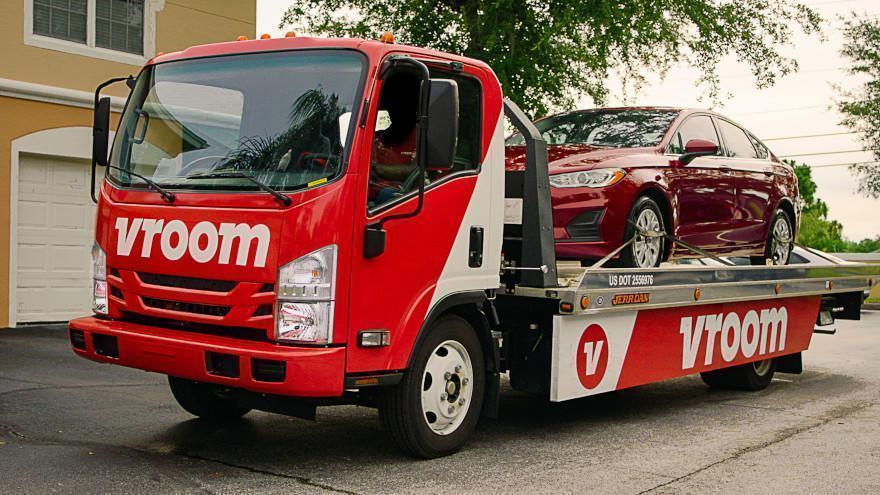A sales slowdown celebrated? In Vroom’s case, yes

Photo courtesy of Vroom.
By subscribing, you agree to receive communications from Auto Remarketing and our partners in accordance with our Privacy Policy. We may share your information with select partners and sponsors who may contact you about their products and services. You may unsubscribe at any time.
Most companies would bemoan a 67% drop in the number of vehicles sold online in the third quarter of 2022. Not so used car retailer Vroom.
“We've made the choice to slow down. We slowed down with the intent to continue improving our customer experience. We plan to live within our means while we prioritize unit economics, profitability, and liquidity over growth,” said Vroom CEO Thomas Shortt on the NASDAQ-listed company’s third-quarter earnings call.
Vroom reported a third-quarter loss of $51.5 million, better than its $98 million loss in the same quarter in 2021. But the online retailer’s revenue also plunged 62% to $340.8 million compared to the same quarter in 2021.
Shortt became CEO of Vroom in May when Paul Hennessey stepped down as CEO. Shortt previously was Vroom’s chief operating officer.
An oft-repeated percentage during the earning call was 98% — as in “98% of customers receiving the registration before the expiration of their temporary tag.”
Vroom received a deluge of customer complaints and even faced a lawsuit earlier this year over failure to deliver title and registration to buyers of its vehicles in a timely manner. “Our goal is to become best-in-class in titling and registration,” said Shortt.
Subscribe to Auto Remarketing to stay informed and stay ahead.
By subscribing, you agree to receive communications from Auto Remarketing and our partners in accordance with our Privacy Policy. We may share your information with select partners and sponsors who may contact you about their products and services. You may unsubscribe at any time.
While its decision to purposefully slow down contributed to fewer third-quarter sales, so did “a large, unexpected staff reduction” at a third-party sale partner, said Shortt.
Vroom attributes a 32% decrease in customer contracts in the four weeks after the reduction compared to the four weeks before to that sales force reduction. The third-party partner was not named.
Vroom had planned to bring its sales force in-house; it is now occurring more quickly than planned. Its sales force will be fully staffed by the first quarter of 2023, said Shortt.
Vroom’s ecommerce gross profit per unit including vehicle and product increased by 16% to $4,206. “This increase was driven primarily by higher sales margin as we further optimized pricing,” said chief financial officer Robert Krakowiak.
The higher sales margin may be fleeting. Due to its backlog in registering vehicles, older units bought at higher prices haven’t yet been sold, and the margins on those units will be slim to non-existent.
As the titling and registration process improves, more of those units will be available for sale, said Krakowiak
“Coupled with declining used-vehicle prices across the market, we expect this to negatively impact our sales margins in the fourth quarter,” he said.
Shortt declined to comment on what next year will look like for Vroom or for the used-car market as a whole.
“I think that's a $64,000 question … how are things going to play out next year as the Fed continues to raise rates and depends on what happens with inflation,” he said.


